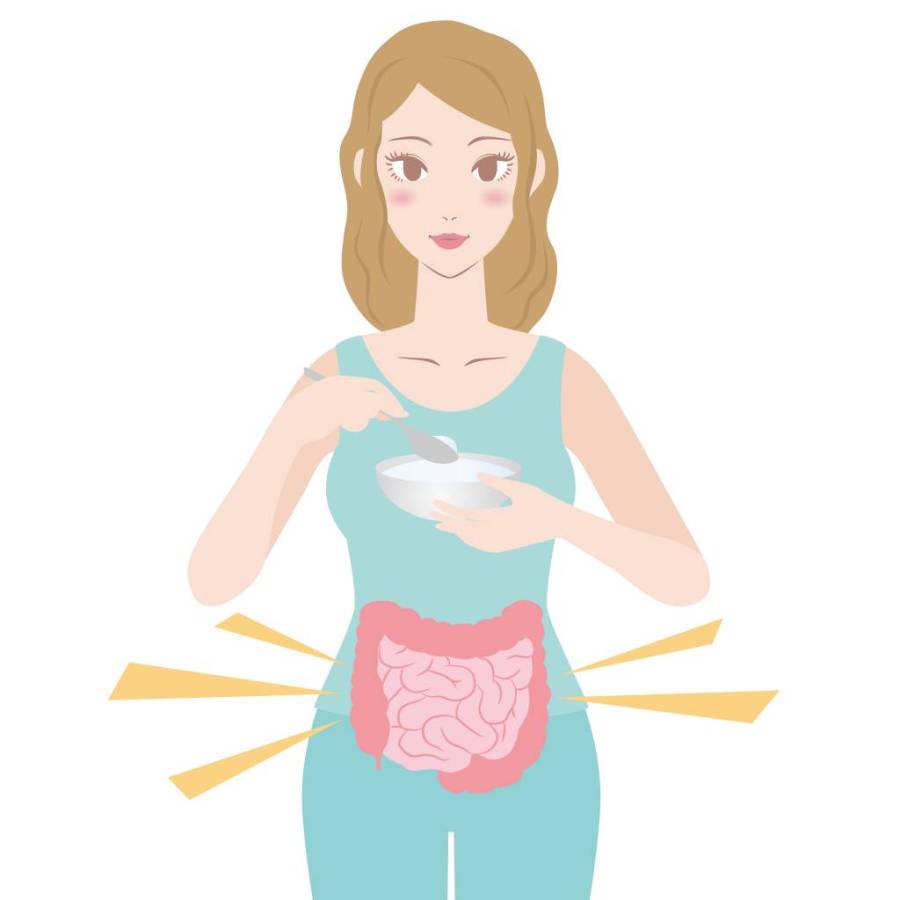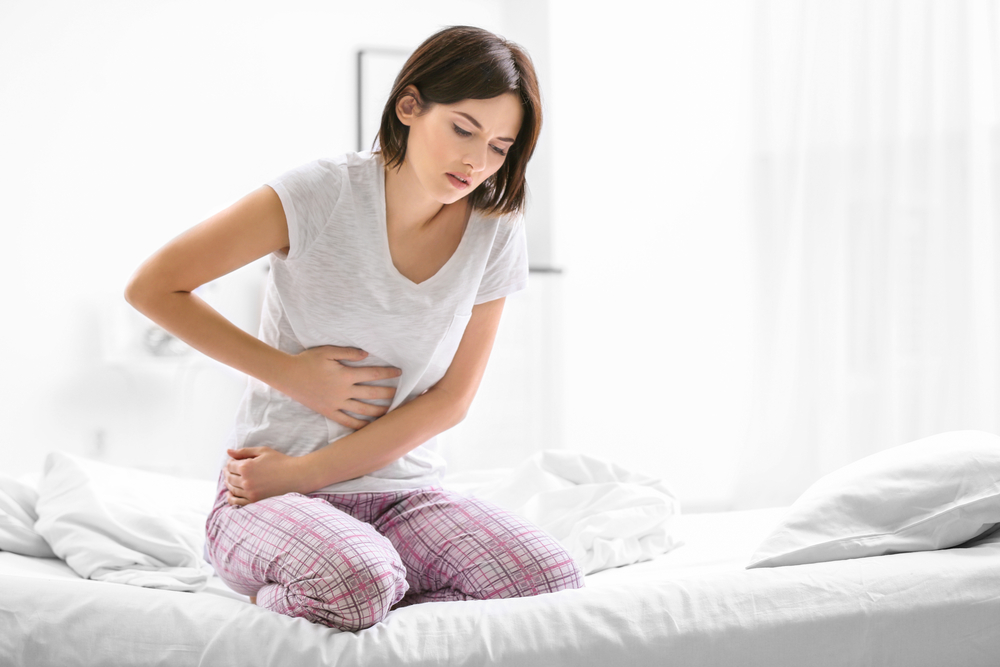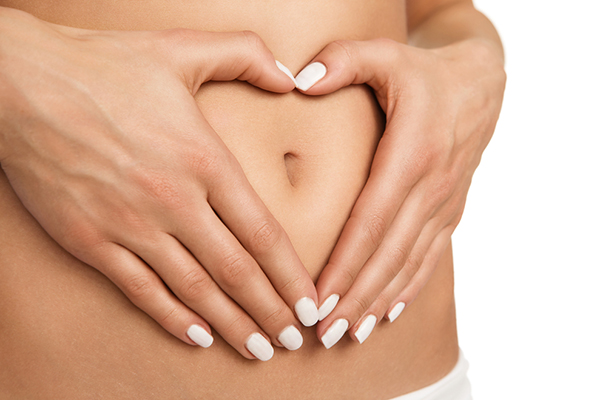Improving your gut health can be as easy as adding (or removing) certain foods from your diet, trying a new type of exercise or taking a probiotic.
As anyone who’s ever had a bloated or sore stomach will know, when your gut health is out of whack, it can throw off your whole life. Here’s our complete guide to what a healthy gut looks and feels like, how to boost your good bacteria, what causes tummy troubles and how to cure them.
Top tips for a healthy gut
How can I improve my gut health and good bacteria?
As well as changing what you eat, you can also reduce the amount of alcohol you drink and give your water intake a boost. Stress is often a cause of tummy pain, so consider treating yourself to a massage, trying some meditation or addressing other causes of stress in your life.
Of course if symptoms persist it’s worth speaking to your GP to rule out intolerances or more worrying problems.
The healthy gut diet
As is so often the case in health, when it comes to pleasing your tummy bacteria, plant-based is best. Different microbes in the stomach prefer different foods, so aim to eat a wide range of fruit and vegetables. Avoid processed foods where possible, and choose extra-virgin olive oil over other fats – it’s packed with polyphenols that gut microbes love.
What are polyphenols?
Polyphenols are plant compounds that have benefits including lower blood pressure and cholesterol, and are also good for gut bacteria. They can be found in broccoli, blueberries, green tea, cocoa, red wine and almonds.
Research from the American Society of Microbiology found that those eating more than 30 different plant species and a moderate amount of meat, poultry and fish had the healthiest variety of gut bacteria.
Which spices can improve gut health?
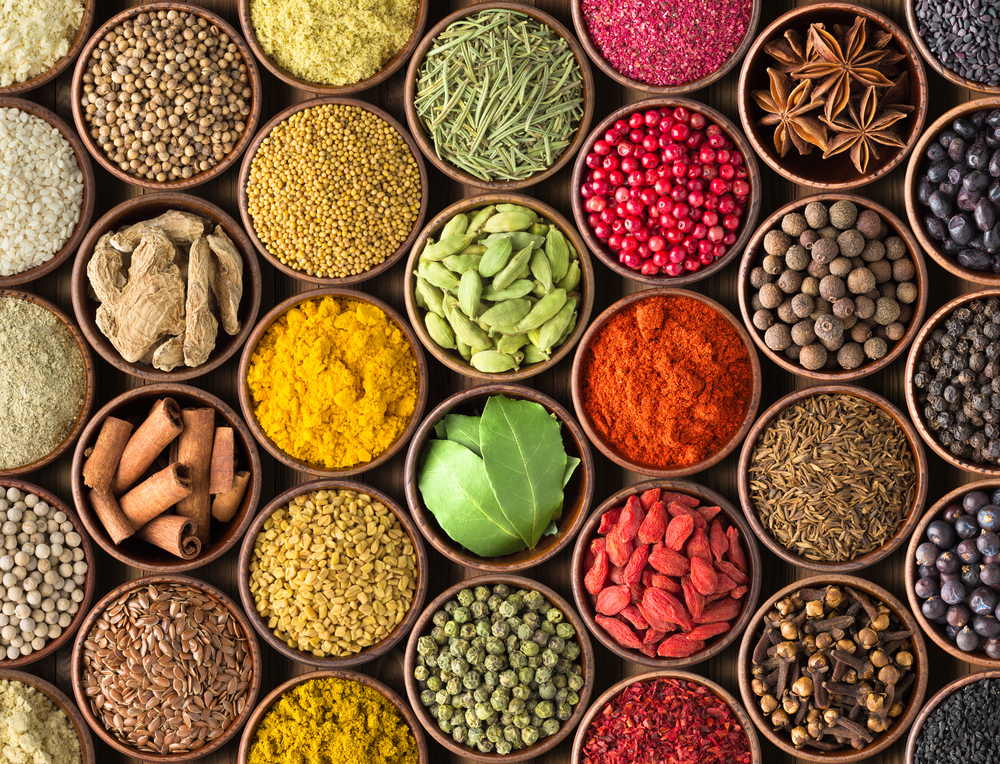 As well as adding flavour to meals, many spices have gut health benefits too, with turmeric, chilli, cumin, cinnamon and paprika all having proven results on lowering inflammation in the stomach. This allows your bacteria to grow and develop, and therefore keeps your microbiome in better balance.
As well as adding flavour to meals, many spices have gut health benefits too, with turmeric, chilli, cumin, cinnamon and paprika all having proven results on lowering inflammation in the stomach. This allows your bacteria to grow and develop, and therefore keeps your microbiome in better balance.
- Turmeric can also help erection problems – find out more!
Fibre for gut health
Another reason primarily plant-based diets can work wonders for the stomach is the high levels of fibre in whole fruits, vegetables, pulses and nuts. Add in some wholegrains too. But be careful, adding too much fibre suddenly can cause bloating, so start off with gradual changes and plenty of water.
Exercise keeps your gut healthy
As well as keeping your weight down, building muscle and strengthening bones, there’s one more reason to stick to an exercise routine – it keeps your gut in good shape! A new study has shown that people with the highest cardiovascular fitness also have the highest ratio of a beneficial gut bacteria, called firmicutes. These have been linked with metabolites, a metabolic byproduct that strengthens the intestinal lining and can help prevent leaky gut syndrome.

Did you know that there are specific yoga poses to help with IBS and bloating? Try them today!
How does eating fat affect gut health?
Eating too much saturated fat can cause an inflammatory response in the GI tract, which, according to Linda Rinaman, can make you feel anxious or even depressed.
Meanwhile, eating a diet rich in fibre and including prebiotics and probiotics can help your gut’s good bacteria to thrive.
How to tell if your gut is healthy

Our tummies are pretty good at letting us know if something isn’t right. The odd bout of tummy trouble isn’t a big deal (although it can be miserable!) but if you experience regular diarrhoea, reflux, pain, bloating, constipation or any form of upset stomach, then you may need to address your gut health.
Take our healthy gut quiz!
- Discover the daily habits that could be harming your gut health
Signs of an unhealthy gut
Other symptoms can include bad smelling poo, loose stools, feeling gassy, a foggy head , low energy levels or a bad mood – roughly 80% of serotonin is made in the gut. Some experts have suggested that craving foods, especially sweets and sugar, can imply that your gut bacteria are out of whack. This can happen when there’s an overgrowth of yeast in your gut, which can cause sugar cravings.
Put on weight unexpectedly? Your gut bacteria could be to blame. Find out more about the link between healthy gut bacteria and weight loss.
Link between gut health and depression
Many scientists believe that there’s a connection between depression and anxiety and gut health, after years of reported links between stomach health problems and patients with mental health issues.
It’s all to do with the vagus nerve – the longest nerve in the body, which connects the gut and brain along a pathway known as a the gut-brain axis. This link is why many refer to the gut as a ‘second brain’, and messages can pass both ways.
A healthy gut diet of low FODMAP foods can improve quality of life, as well as reducing anxiety and depression, according to a study from the University of Michigan.
There are now theories that, in the future, fecal transplants (swallowing capsules containing fecal matter from someone else) may be used to treat depression, as they are currently shown to improve gut health.
What is the gut microbiome and what does it do?
A microbiome is an internal ecosystem of organisms including yeasts, fungi, viruses, protozoans and bacteria. Scientists are only just starting to understand the effect of this system in the gut, but early research indicates it’s a sensitive system that needs to be kept in balance for optimum health.
What do ‘good’ gut bacteria do?
It seems there could be a connection between the concentration and variety of bacteria in your gut with your mood, weight and even how clearly you can think.
Healthy gut bacteria, also known as gut flora or microbiota, are a complex community of microorganisms that live in your digestive tract. They work to synthesise various vitamins, produce hormones and break down dietary fibre, and their composition changes throughout life, depending on your general health and diet.
What causes butterflies in my tummy?
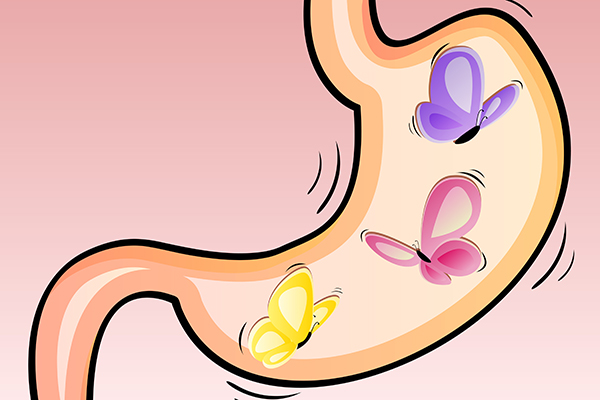
Scientists have revealed the reason for that fluttery feeling in your stomach if you’re stressed. It’s enterochromaffin cells, which are a bit like taste buds for your intestine. They produce 90% of your body’s serotonin and when they sense certain stimuli, caused by your gut contracting, they trigger electrical impulses in nearby nerves.
But this butterfly feeling doesn’t always mean you’re feeling stressed. The cells are also triggered by certain foods, namely new rich in sulphur such as cabbage and wasabi.
Are antibiotics bad for your gut?
Antibiotics are of course brilliant for solving a myriad of infections, but the downside is that they sometimes wipe out protective gut bacteria as well – sometimes causing diarrhoea. A further, more severe risk, is that you could potentially develop a Clostridium difficile (C. difficile) infection. This is a dangerous type of bacteria that can cause life-threatening complications.
The good news is that your likelihood of contracting it is lowered if you take probiotics during your course of antibiotics.
Do probiotics work?
Read more about probiotics and their health benefits here.
What’s the difference between probiotics and prebiotics?
Probiotics are foods or supplements that have live bacteria in them, and are thought to benefit the gut. Prebiotics are foods that help boost existing gut bacteria and encourage a diverse culture of microbes. They include things like veggies and wholegrains.
Which foods are prebiotic?
Read our full list of prebiotic foods here
Which foods are probiotic?
Read our list of probiotic foods here
Does a vegan diet support good gut health?
Sad news for the recent flood of vegan converts – a study of more than 10,000 British, US and Australian citizens found that those eating omnivorous diets combining meat and plants had the healthiest gut bacteria.
Stomach problems – and how to help
- Boost your digestion with these stomach soothing exercises
Constipation
If you’re suffering from constipation, you may feel sluggish, bloated and downright grumpy. Read more about the symptoms of constipation and how to treat it.
Leaky gut syndrome
Leaky gut syndrome is also sometimes referred to as intestinal permeability, although there is some debate in the medical world about what it is, and the problems it causes. The problem comes when the mucosal barrier in the bowel becomes less effective. Many experts believe it can lead to conditions including MS and chronic fatigue syndrome. Read more about leaky gut here.
IBS
Irritable bowels syndrome is very common, with a fifth of us regularly suffering. Symptoms can include diarrhoea, cramping, tiredness constipation and bloating. A low FODMAP diet can help IBS symptoms.
Diarrhoea
An upset stomach can be a result of many things – from a dodgy meal to a more serious problem such as IBS, thyroid problems or inflammatory bowel disorder. Read our guide to diarrhoea and how to help.
Bloating
Feeling like your tummy is sore and swollen after a meal is common but uncomfortable, and if it happens regularly it could be the symptom of another problem. Luckily, there are lots of ways to help with bloating.
How a healthy gut can help cancer treatment
Bacteria in our digestive system may help to shrink tumours during cancer therapy, according to French and US studies.
The research tested the microbiome (the collection of microscopic species in the gut) in cancer patients, and found that specific species as well as overall diversity had an impact on the effectiveness of immunotherapy drugs.
The microbiome works for digestion, to protect the body from infection and to regulate the immune system.
One study found that patients who had taken antibiotics (thought to damage the microbiome) were more likely to see tumours grow while going through immunotherapy.
Those that responded well to therapy tended to have a more diverse microbiome.
What is a gut feeling?
We’ve all heard the expression ‘go with your gut’ and it turns out there may be some truth to it. Being led by your stomach might make sense, according to Linda Rinaman, the author of a review on the biology of gut reactions for Florida State University. Her research has found that our gut-to-brain signals are a powerful influence on our feelings, mood and even our decision making skills. She says that the gut and brain ‘talk’ to one another via the vagus nerve, and that the gastrointestinal tract sends more signals to the brain than any other organ.
Eat cherries to improve your gut health
 One simple (delicious) way to be kind to your tummy today is to eat a bowl of cherries. New research has show that tart cherries play an important role in gut health. Researchers from the University of Arkansas used Montmorency cherries for their study, and found the polyphenols in the fruit helped to positively shape the gut biome.
One simple (delicious) way to be kind to your tummy today is to eat a bowl of cherries. New research has show that tart cherries play an important role in gut health. Researchers from the University of Arkansas used Montmorency cherries for their study, and found the polyphenols in the fruit helped to positively shape the gut biome.
As well as their benefits for your digestive system, cherries are also great for keeping your blood sugar stable and boosting your immune system.
Eating insects is good for your gut
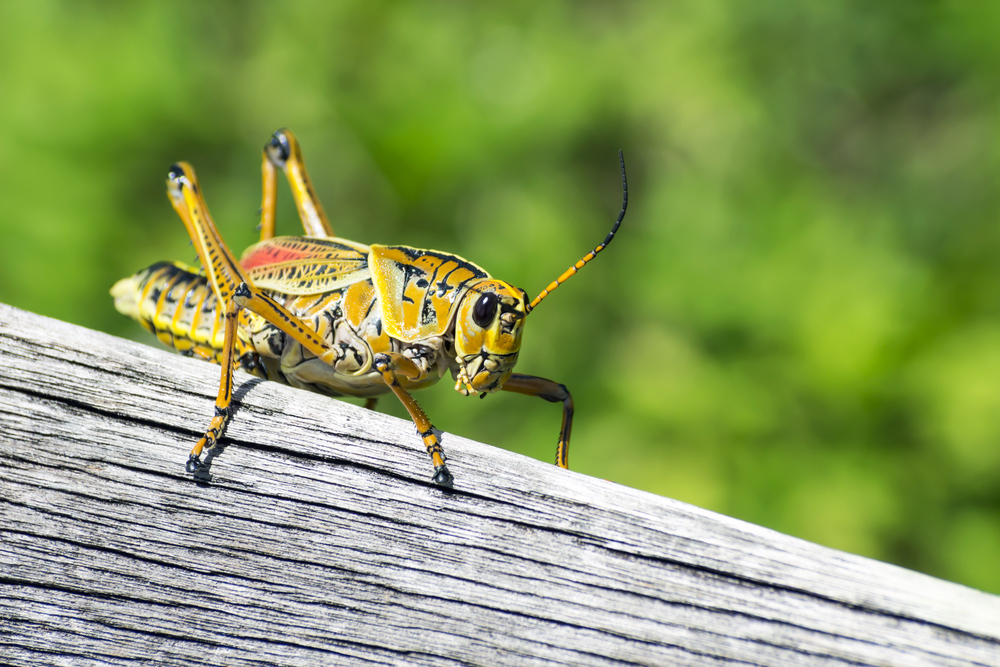
We have good news and bad news for you. The good news is a recent study has found an easy way of improving your gut health…the bad is that it’s completely gross. It turns out that eating crickets and other insects could be good for your tummy, as they can boost a metabolic enzyme related to improved gut health. The study, conducted earlier this year, involved participants eating powdered crickets on their breakfasts. Yum. They also found that the cricket diet led to a reduction in a blood protein linked to inflammation.
- Read our flat stomach plan

